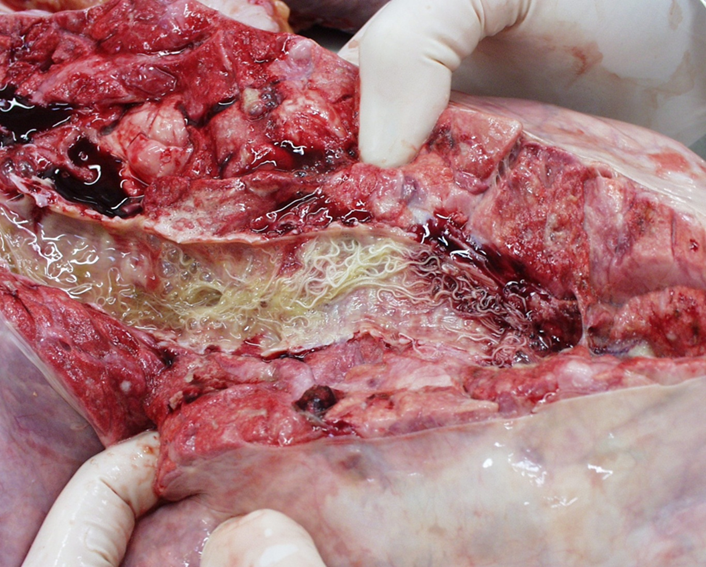Help COWS understand lungworm better
We have had several anecdotal and confirmed cases of lungworm in cattle already, starting in mid-June. The peak of cases tends to occur in September, and we think this year will be no exception.
- Diagnosis can be confirmed on examination of faecal samples for lungworm larvae using the Baermann technique
- If there is strong clinical suspicion of lungworm infection, prompt treatment is essential because delaying (to confirm the diagnosis) could result in more severe lung damage
- If postmortem examinations are being performed on farm, remember to open down the trachea right to the terminal airways as this is where the parasites are found
- Historically lungworm is a common diagnosis in south-west Scotland in autumn but interestingly, recent laboratory confirmed cases have included cases from the north and east of Scotland and in imported cattle. These are important surveillance signals highlighting that infection can occur anywhere and outside the traditional geographic areas
- The COWS lungworm chapter is well worth a read
If you are dealing with outbreaks of lungworm in cattle, please do fill out the COWS survey. In recent years, we have been aware of reports of suspected lack of efficacy of wormers to treat lungworm infections in cattle. It can be difficult to determine if this is due to resistance or if it is down to poor administration, such as under-dosing or inappropriate storage of products. The survey will help our understanding on this subject.

The collated, anonymised data will be used to form the basis of future discussions around this issue. We would encourage vets to supply information from lungworm outbreaks to tell us about any testing undertaken and response to treatment. Please supply information from cases regardless of whether treatments have been successful or not.
We are always pleased to talk over any cases you see in practice, so don’t hesitate to get in touch.
Posted by SRUC Veterinary Services on 28/08/2024
